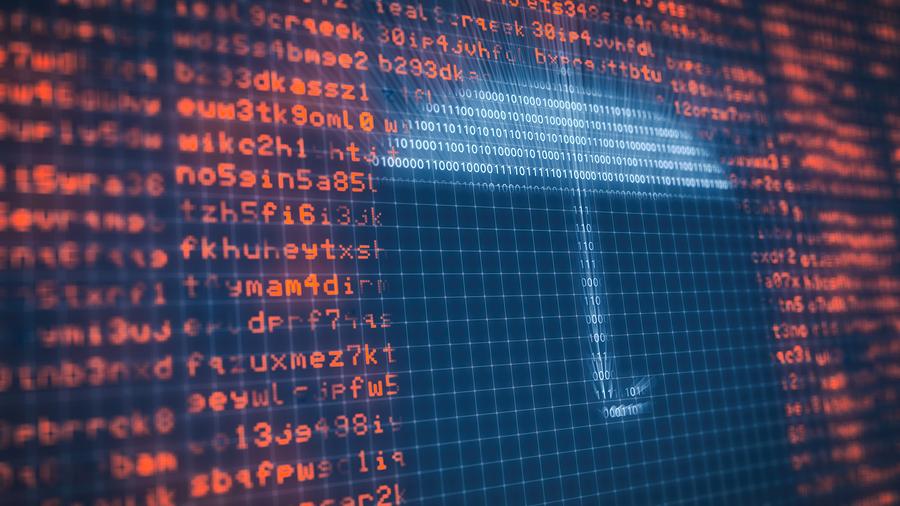How Robust Data Destruction Boosts Your Overall Cyber Security Measures
How Robust Data Destruction Boosts Your Overall Cyber Security Measures
Blog Article
The Necessary Nature of Information Destruction in Upholding Computer Safety And Security Solutions and Protecting Against Unauthorized Gain Access To
In a period where information breaches and identification theft are significantly common, the value of reliable data damage can not be overemphasized. Various techniques, from information wiping to physical destruction, offer as critical safeguards versus unauthorized accessibility.
Value of Data Devastation
In a progressively digital globe, the relevance of data devastation can not be overemphasized. As companies generate huge quantities of delicate info, the prospective repercussions of failing to correctly get rid of and take care of of that information become increasingly severe. Data violations, identification burglary, and business reconnaissance present substantial hazards, underscoring the need of effective data damage methods.

In addition, as modern technology develops, so too do the methods by which harmful actors look for to make use of sensitive details. Organizations has to stay proactive and cautious in their information destruction methods to secure versus these developing threats. By focusing on information devastation, companies not just protect their assets however also foster count on amongst clients and stakeholders, demonstrating a dedication to responsible information management and security methods.
Approaches of Effective Data Devastation
To ensure the total and irreversible destruction of sensitive data, organizations can use a selection of reliable techniques tailored to their certain needs. Among one of the most common approaches is information cleaning, which entails utilizing specialized software program to overwrite existing data multiple times, making recuperation practically impossible. This is specifically beneficial for hard disks and solid-state drives, where conventional removal techniques are poor.
Another effective strategy is degaussing, which utilizes strong electromagnetic fields to interfere with the magnetic domain names on storage space media, making the information irretrievable. This approach is specifically matched for magnetic storage devices, such as tape drives and hard drives.
Physical destruction is also a feasible alternative, entailing the shredding, squashing, or incineration of storage tools. This technique assurances that information can not be recovered, making it optimal for organizations taking care of extremely delicate info.

Compliance With Data Security Regulations
Organizations must not just concentrate on efficient data devastation approaches but also guarantee compliance with data defense laws that govern exactly how sensitive info is taken care of and disposed of. Following these guidelines is important for preserving and safeguarding personal data consumer trust fund. Rules such as the General Data Protection Regulation (GDPR) in the European Union and the Medical Insurance Portability and Liability Act (HIPAA) in the USA impose strict guidelines on information monitoring, that include needs for the safe and secure disposal of delicate info.
To achieve conformity, organizations should implement comprehensive information destruction plans that straighten with these lawful structures. This includes recognizing information that calls for devastation, developing procedures for secure methodsâEUR" such as shredding physical media or utilizing software program that fulfills sector standards for information wipingâEUR" and keeping comprehensive records of destruction tasks. Normal audits should be performed to make sure adherence to these policies and to identify any potential locations for improvement.
Failure to follow data protection guidelines can lead to substantial legal ramifications, consisting of substantial fines and damage to a company's credibility. Incorporating conformity right into information destruction practices is not only a legal responsibility yet additionally an essential part of a robust info safety and security method.
Consequences of Poor Information Handling
Poor data handling can lead to severe effects that extend beyond immediate operational troubles. Organizations may encounter significant monetary losses as a result of data violations, which frequently result in costly removal initiatives, legal charges, and regulatory penalties. These economic effects can prevent and strain sources development, ultimately impacting an organization's profits.
In addition, inadequate information handling can drastically harm an organization's credibility. Customers, companions, and stakeholders might lose rely on an entity that falls short to secure sensitive details, leading to lowered client loyalty and potential loss of business opportunities. This disintegration of trust fund can take years to restore, if it can be brought back in all.
Furthermore, organizations could deal with legal implications his explanation emerging from non-compliance with information protection policies. Such violations might result in charges and investigations, intensifying the monetary burden and additional staining the company's picture.
In the realm of cybersecurity, insufficient data administration techniques can create susceptabilities that make systems more prone to unapproved access and cyberattacks. Eventually, these effects emphasize the vital importance of executing durable information taking care of procedures to secure delicate details and keep organizational integrity.
Finest Practices for Secure Data Disposal


To start with, data must be classified according to its level of sensitivity. Delicate information calls for much more rigorous disposal methods, such as shredding physical files and utilizing sophisticated software application for electronic information wiping. Utilizing qualified data damage solutions ensures compliance with sector policies and criteria.
Second of all, organizations should carry out a data disposal policy that mandates routine audits. This plan needs to outline the procedures for data retention and damage, making certain that out-of-date data is disposed of immediately and securely. Training employees on these procedures is essential to promoting a society of safety awareness.
Lastly, maintaining detailed documents of disposed information boosts responsibility and gives a clear audit route. This paperwork must consist of the sort of data ruined, the method made use of, and the YOURURL.com day of disposal.
Verdict
To conclude, the important of effective information damage is obvious in its function in enhancing computer safety solutions and reducing unapproved access risks. Embracing durable approaches such as data wiping, degaussing, and physical destruction, along with compliance with regulations like GDPR and HIPAA, is essential for safeguarding delicate information. Disregarding appropriate information disposal methods can lead to extreme consequences, consisting of data violations and lawful repercussions. Implementing ideal practices in safe and secure information disposal ultimately fortifies business integrity and client count on.
In a period where data breaches and identification burglary Going Here are significantly prevalent, the relevance of effective information destruction can not be overstated. data destruction. Information breaches, identity theft, and business espionage posture considerable threats, underscoring the necessity of efficient information devastation practices
Compliance with policies such as GDPR and HIPAA mandates that organizations carry out stringent information security measures, consisting of the protected devastation of data at the end of its lifecycle.
By prioritizing information destruction, companies not only shield their assets but likewise foster count on among stakeholders and clients, showing a commitment to responsible data management and safety methods.
Organizations need to not only concentrate on reliable data devastation techniques however additionally ensure conformity with information security policies that govern just how delicate info is dealt with and disposed of.
Report this page